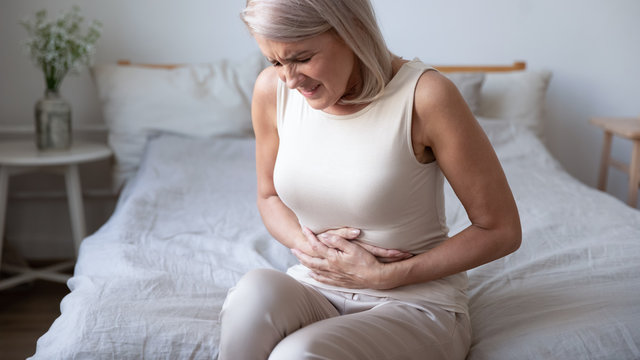Lower Abdominal Pain Causes in Females
Pelvic pain has an effect on the lower part of the abdomen, between the groin and the navel. In women, pelvic pain can also be a signal of menstrual cramps, ovulation, or digestive problems like food intolerances. This may be a sign of a more serious problem.
Abdominal pain usually goes away without surgery, and most people just need to relieve symptoms. (betterhealth.vic.gov.au).
Sometimes, pelvic pain is an indicator of contamination or a problem with your reproductive system, or other organs in the area. This is not only uncomfortable, it can affect your quality of life.
Pelvic pain is pain that you experience in the lower abdomen or pelvis. You may also experience constant pain, which can be quite annoying at times, to the point of affecting a woman's life. When this occurs, a woman may need to see a doctor.
What Does Lower Abdominal Pain Mean?
Abdominal pain felt in the stomach. The abdomen is an anatomical location bounded by the lower border of the ribs and diaphragm above, the pelvis (ramus pubis) below, and the pelvis on each side.
Pain in the lower abdomen is regularly related to the digestive tract, but can also be related to conditions of the body wall, blood vessels, skin, urinary tract, or reproductive organs. The site may be tender to the touch, or the pain may be severe, and the entire abdomen may be rigid.
Severe pain can be a sign and symptom of inflammation, appendicitis, intestinal obstruction, or perforation of the intestine. Severe pain in women may also be caused by ovarian torsion, ovarian cyst rupture, ectopic pregnancy, or pelvic inflammatory disease.
Men may experience severe lower abdominal pain as a result of torsion or testicular injury. Cramping pain may also be caused by gas, inflammation or infection, digestive disorders, in women, menstrual cramps or endometriosis.
Intense pain that comes in waves can also be triggered by kidney stones. Trauma to the body wall, hernia, and herpes zoster can also cause lower abdominal pain.
A hernia is a weakening of muscle or tissue that allows other organs or tissues to protrude through it. Herpes zoster is a reactivation of the chickenpox virus (varicella-zoster) that involves a painful, blistering rash, which often forms streaks on the affected skin area.
Causes Of Lower Abdomen Pain
As a woman, you will experience some pain in your belly, from time to time. It must be due to poor sleeping habits, or something you ate, that made your stomach bloated. However, problems that arise from the gastrointestinal tract usually don't get to the root. Here are the many possible causes of lower stomach pain:
Menstrual pain
Menstrual pain is usually in the form of cramping or tightness in the center of the lower abdomen, sometimes radiating to the outside or to the lower back. This can be very uncomfortable, but many people find that they can work around it with a bottle of warm water or ibuprofen.
Endometriosis.
This is a situation where tissue from the lining of your uterus grows outside your uterus. This tissue deposition responds to your menstrual cycle, much like the lining of your uterus – thickens, ruptures and bleeds every month as your hormone levels rise and fall. Because it occurs in an area outside the uterus, tissue and blood can't get out of the body through the vagina. Instead, they remain in your stomach, where they can also cause painful cysts, and fibrous (adhesive) scarring.
Pelvic inflammatory disease
Infections that occur in the reproductive system can affect the fallopian tubes, uterus and ovaries. Untreated reproductive tract infections can be very serious and cause long term problems, requiring treatment by a doctor. This type of infection is often triggered by a sexually transmitted infection, so if you are a sexually active woman, make sure you get regular sexual health checks.
Irritable Bowel Syndrome.
IBS is a bowel disorder that causes pain and symptoms, including diarrhea, constipation and bloating. The signs of IBS tend to flare up and go away with time, especially after a bowel movement. There is no cure for IBS, so treatment focuses on controlling symptoms through changing stress levels, diet, and medication.
Pelvic congestion syndrome.
Some doctors believe that enlarged varicose veins around your uterus and ovaries can cause pelvic pain as well. However, other doctors are less sure that pelvic congestion syndrome is the cause of pelvic pain, as most women with enlarged veins in the pelvis have no associated pain.
How to Prevent Lower Abdomen Pain
Not all types of abdominal pain can be prevented. However, you can reduce your risk of an upset stomach by doing the following:
- Exercising regularly
- Eating healthy food.
- Consume snacks.
- Drink water often.
If you have a bowel disorder, such as Crohn's disease, follow the diet your doctor has given you to reduce discomfort. If you have GERD, don't take it within two hours of bedtime.
Lying down too quickly after consuming it can also cause heartburn and stomach upset. Try to wait at least two hours after consuming before lying down.
When to see a doctor?
With chronic pain issues, it can be difficult to know when you should see a doctor. In general, make an appointment with your healthcare practitioner if your pelvic pain is interfering with your daily life or if your symptoms seem to get worse.

No comments:
Post a Comment